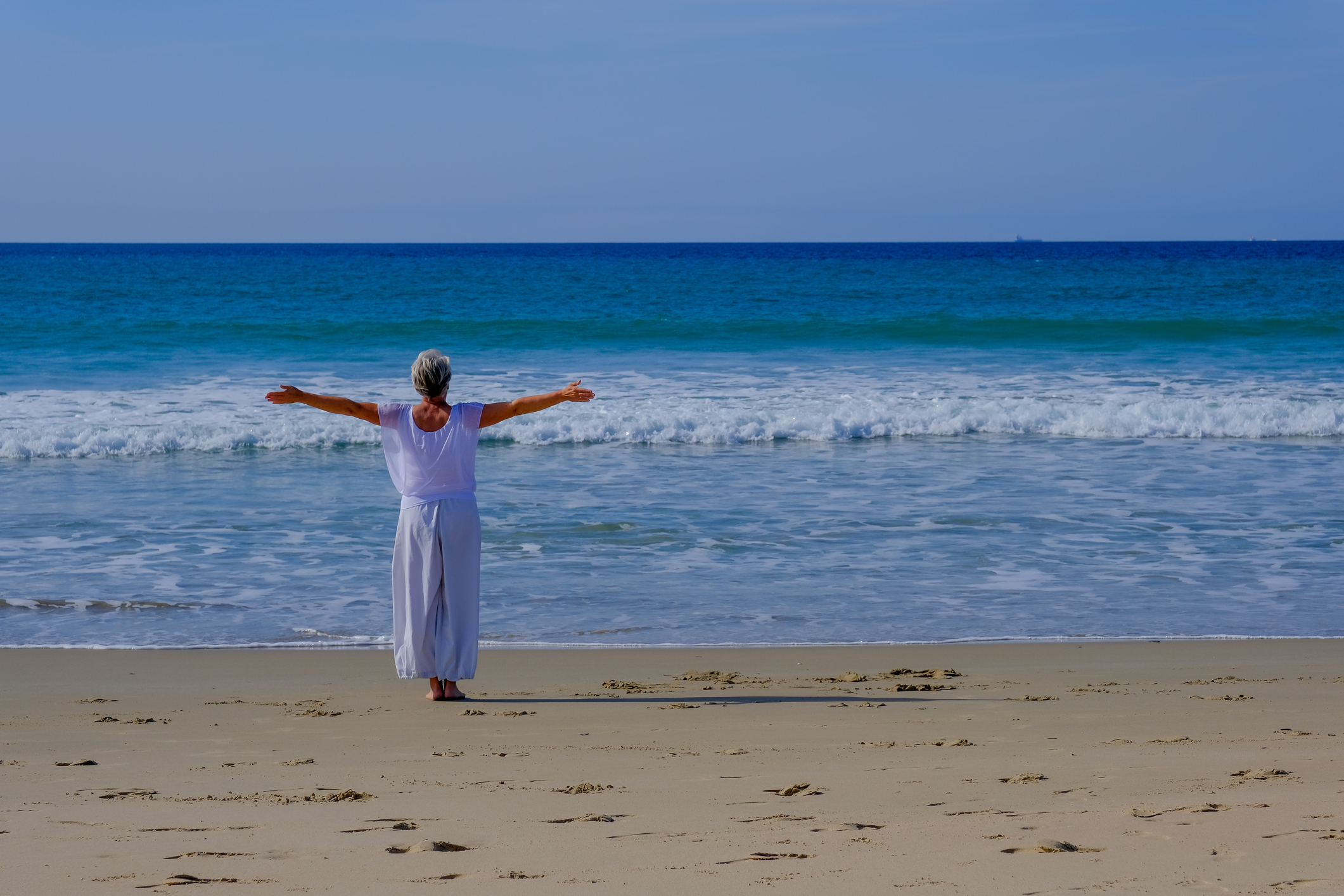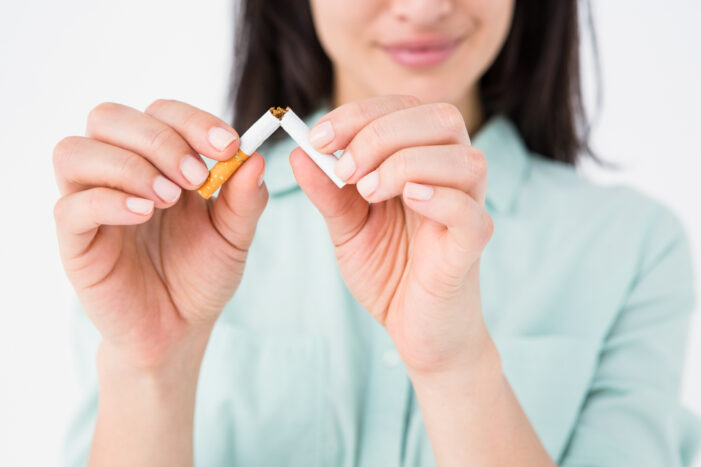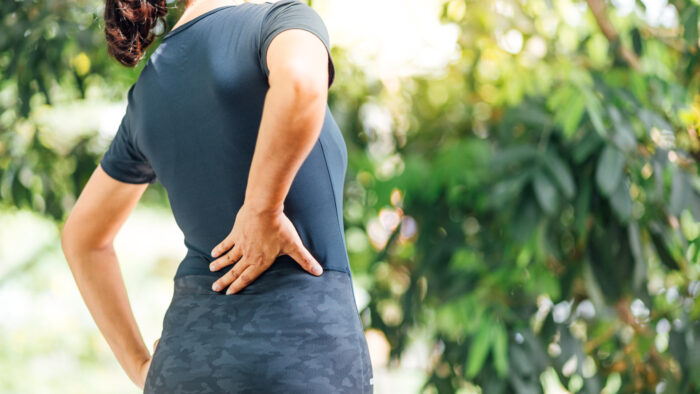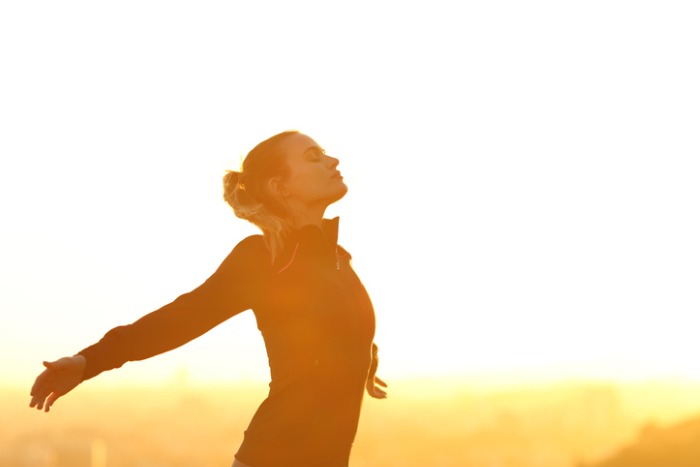
What is qigong?
Qigong is a practice of cultivating energy. The word “qi” refers to energy or life force, and the word “gong” in this case refers to work or practice. Qigong is a combination of gentle movements with mindful breathing that balance and move energy. Qigong can be practiced by anyone at any age or level of health.
Why I love it
I love qigong because it is so simple and effective. It can be practiced anywhere. I don’t need any equipment or to go to the gym. It doesn’t matter if it’s raining outside or too hot or too cold. I can practice if I am sick or injured. I can tailor and recommend qigong movements to every one of my patients regardless of their age or level of health.
Benefits of qigong
Practicing qigong has been said to be like recharging your battery. It gives you energy. Qigong balances your energy, and it can help calm and disperse uncomfortable energy like stress and anxiety. The body is then able to use this energy to heal anything that may need to be healed. Qigong benefits mental, emotional, and physical health. It can also be very helpful in boosting immunity.
How I incorporate it into a treatment
In addition to offering telehealth appointments with customized qigong exercises, I will often recommend qigong exercises to my patients who come in for acupuncture treatments. This is especially useful for people who want to continue to enhance their vitality and well-being at home. At the end of an acupuncture session, I will teach patients a simple exercise or two. We’ll practice it together to make sure they can feel the sensations and ask questions if needed. Here are two examples of simple qigong exercises that can be done at home:
Shaking:
- Stand with feet shoulder with apart.
- Start at your hands and begin a shaking motion that moves up your arms and through your body. Include your head, torso, legs, etc.
- This moves energy and stuck emotions.
- Let yourself exhale deeply to release tension.
- Open your mouth and make a sound if you like. This could be a sigh, a grunt, or whatever feels right to you.
- This exercise is great for stress relief.
Calming:
- Stand with feet shoulder width apart.
- Inhale and raise arms with palms facing up over your head, and then exhale with the palms facing each other and gently let them float down.
- When your palms pass in front of your face, turn the palms down to face the ground and continue lowering your palms in front of you until they reach your hips.
- Repeat at least three times.
- During the last time, let your hands rest on your lower abdomen with palms facing in, and take a few more slow breaths into your abdomen.
- This exercise is also referred to as “waterfalls”. It can be helpful to envision gentle water washing over you, easing away tension and invigorating you as you practice.
- This exercise smooths, calms, and grounds your energy.
Resources
There are so many wonderful books, DVDs, and even free videos on Youtube dedicated to qigong practices. Some are tailored to areas like stress and anxiety, headaches, back pain, insomnia, digestion, and immunity to name a few. Others focus on certain populations, like chair-based qigong for elderly or injured people.
Here are links to some of my favorite teachers and videos:
- Qigong Master David Coon’s videos
- Free videos from Qigong Master David Coon’s Youtube channel
- Qigong Master Lee Holden’s videos
- Free videos from Qigong Master Lee Holden’s Youtube channel
- Master Ou’s Pangu Shengong web page
Want to learn more about qigong and get customized exercises just for you? I’d love to hear from you. Reach out and email me through our website or call or text 910-622-4269.
About the Author
Ericca Burke is the owner of HAVEN Acupuncture & Chinese Medicine where she provides acupuncture and Chinese medicine treatments in Wilmington, NC. Click this link to read more about Ericca.
About HAVEN Acupuncture & Chinese Medicine in Wilmington, NC
HAVEN Acupuncture & Chinese Medicine is an acupuncture and Chinese medicine practice located in Wilmington, NC just minutes from beautiful Wrightsville Beach. Click this link for contact information and directions. Click this link for a listing and description of services offered.



